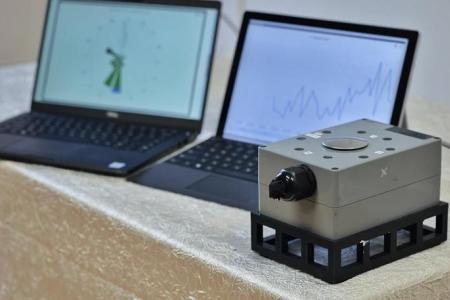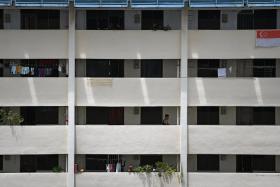Noise sensors in homes proposed to help resolve disputes
Noise sensors might soon be deployed in homes as part of efforts to resolve severe noise disputes between neighbours, if legislative changes to laws governing community disputes are tabled in Parliament and passed.
The use of these sensors is part of a suite of amendments to the Community Disputes Resolution Act that the Ministry of Culture, Community and Youth (MCCY) hopes to table in Parliament by the end of 2024.
The sensors, which will be installed in homes after obtaining consent from residents affected by noise disputes, will monitor and determine the source and intensity of the disturbances.
The proposed laws will also give powers to a new government unit, called the Community Relations Unit (CRU), to investigate such disputes and issue abatement orders that require individuals to stop making noise that disturbs their neighbours.
Officers from the CRU will be able to install noise sensors in homes to collect data on the direction, timing and intensity of noise.
The sensors may also be deployed in common areas such as corridors with permission from the town council. A notice will be put up to inform residents about the device, and the duration for which it will be deployed.
The data from these devices will be a source of “objective evidence” and help officers validate noise complaints, said the Government in a statement on Aug 12.
It pointed out that sound recordings provided by complainants are “often not useful” for determining volume as these can be distorted or a source of noise itself.
The proposed changes to the law were announced by MCCY, the Ministry of Law and Ministry of National Development in a joint statement.
If passed, the new laws will help the authorities better address severe noise disputes, said the Municipal Services Office’s senior director for operations Yap Yeow Chern.
Mr Yap pointed out that in some severe cases, residents would try to evade the authorities and avoid making noise when officers go over to investigate.
The sensors will help complainants prove their case, he added.
In the first half of 2024, the Housing Board received 2,160 noise-related feedback cases per month on average.
Mr Yap said about 10 per cent of noise disputes between neighbours cannot be resolved through mediation, and of these cases, only a portion would require a noise sensor installed.
The ministries stressed that efforts would be taken to safeguard privacy. They said data gathered will be transmitted in real time to Singapore-based servers, and there will be strict access controls for processing. Raw recordings will not be stored.
This process would also be automated, which means that no one would be able to listen to the content of the recording, including private conversations.
“We will deploy the noise sensors as a confirmatory tool, not as a discovery tool,” said Mr Yap.
“This will help us after our initial investigations have narrowed down roughly which unit the noise is coming from.”
In their statement, the ministries also cited some past cases in which noise sensors would have come in useful.
One case involved complaints about persistent banging noises. But the noise would stop each time officers visited the unit, only to resume after they left.
The ministries pointed out that the authorities were unable to take action as there was a lack of evidence.
In another case, a resident complained about excessive noise from the neighbour living in the unit above, and admitted that he had retaliated by hitting the ceiling. Other neighbours said the noise stemmed from the original complainant’s unit.
The use of noise sensors in this case would be able to verify the true source of the disturbance and refute any allegations.
Get The New Paper on your phone with the free TNP app. Download from the Apple App Store or Google Play Store now


